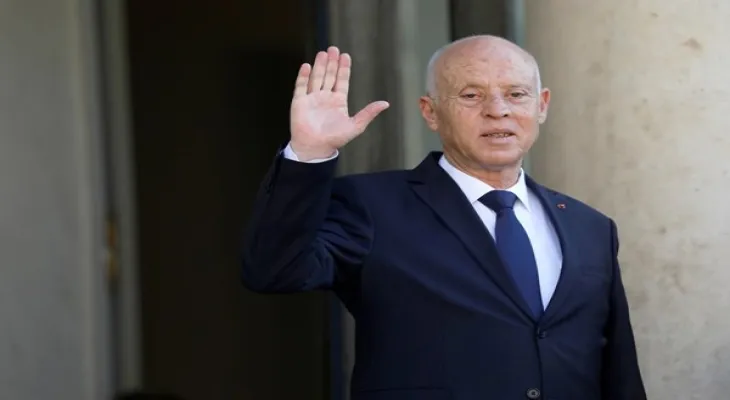Search here
Newspaper
Search here

Arab Canada News
News

Published: June 2, 2022
Tunisian President Kais Saied dismisses 57 judges and pledges to reveal the names of these judges, "who are suspected of altering the course of terrorist cases, and involved in financial and moral corruption, bribery, and exorbitant wealth," according to him.
Tunisian President Kais Saied dismissed 57 judges whom he previously accused of corruption, collusion, and covering up suspects in terrorism cases.
In a speech opening the cabinet meeting on Wednesday evening, Saied sharply criticized the "manifestations of corruption, shortcomings, and negligence suffered by the judiciary," directing "a series of accusations to some judges suspected of involvement in corruption and covering up corrupt individuals, obstructing the tracking of suspects in terrorist cases, and colluding with influential political or financial entities."
Saied stressed that "this situation necessitated the cabinet's decision in its meeting regarding a draft law amending the decree related to the Temporary Supreme Judicial Council."
The Tunisian president also pledged, according to a video clip on the official Presidency page, to reveal the names of these judges, "who are suspected of altering the course of terrorist cases, and involved in financial and moral corruption, bribery, and exorbitant wealth," noting that "all files were reviewed from multiple sources to ensure no one is wronged, and thoroughly examined for weeks," and that "it is no longer acceptable today for justice to be absent from judicial palaces."
In this regard, Saied said, "I gave opportunity after opportunity, and warnings were issued to cleanse the judiciary itself, and I cannot purify the country from corruption and breaches of the law except through a complete cleansing of the judiciary," adding that there is "deliberate procrastination and delay in opening all files, despite their readiness," and confirming in the same context that "this situation cannot continue without an end."
The President spoke about a judge who deliberately delayed the tracking of terrorist files, numbering 6268 reports, who is suspected of lack of impartiality, overstepping authority, directing investigations, violating procedures, threatening judges, and disruptions in performing duties when assuming judicial functions, and has a hidden disciplinary file in the judicial palaces that has not been examined either.
Saied touched upon "a series of violations by these judges, including obstructing the tracking of suspects in terrorist files, opposing the application of Article 23 of the Code of Criminal Procedure in the ‘Secret Apparatus’ case, and refusing to open criminal investigations in security-related cases with a terrorist nature."
He also referred to "one judge exploiting his position in the Economic and Financial Judicial Pole to obstruct the tracking of suspects in terrorist files, intervening to protect political parties and influential persons, and one of them deliberately intervened in the course of important cases from his position as an advisor at the Presidency of the Government."
Comments